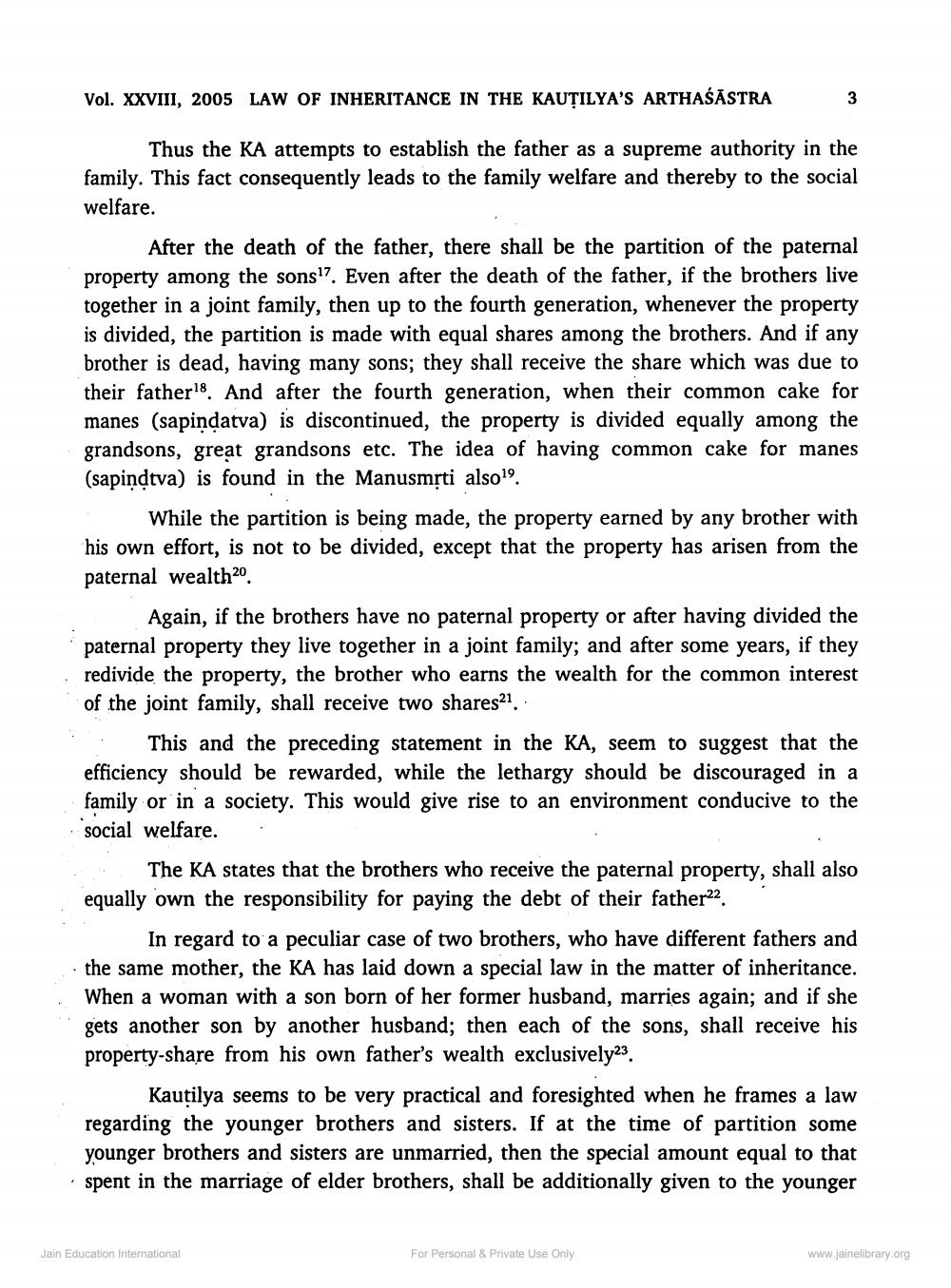Book Title: Sambodhi 2005 Vol 28 Author(s): Jitendra B Shah, K M Patel Publisher: L D Indology Ahmedabad View full book textPage 9
________________ Vol. XXVIII, 2005 LAW OF INHERITANCE IN THE KAUȚILYA'S ARTHAŚĀSTRA 3 Thus the KA attempts to establish the father as a supreme authority in the family. This fact consequently leads to the family welfare and thereby to the social welfare. After the death of the father, there shall be the partition of the paternal property among the sons". Even after the death of the father, if the brothers live together in a joint family, then up to the fourth generation, whenever the property is divided, the partition is made with equal shares among the brothers. And if any brother is dead, having many sons; they shall receive the share which was due to their father's. And after the fourth generation, when their common cake for manes (sapindatva) is discontinued, the property is divided equally among the grandsons, great grandsons etc. The idea of having common cake for manes (sapindtva) is found in the Manusmrti also. While the partition is being made, the property earned by any brother with his own effort, is not to be divided, except that the property has arisen from the paternal wealth2o. Again, if the brothers have no paternal property or after having divided the paternal property they live together in a joint family; and after some years, if they redivide the property, the brother who earns the wealth for the common interest of the joint family, shall receive two shares21. This and the preceding statement in the KA, seem to suggest that the efficiency should be rewarded, while the lethargy should be discouraged in a family or in a society. This would give rise to an environment conducive to the social welfare. The KA states that the brothers who receive the paternal property, shall also equally own the responsibility for paying the debt of their father22. In regard to a peculiar case of two brothers, who have different fathers and the same mother, the KA has laid down a special law in the matter of inheritance. When a woman with a son born of her former husband, marries again; and if she gets another son by another husband; then each of the sons, shall receive his property-share from his own father's wealth exclusively23. Kautilya seems to be very practical and foresighted when he frames a law regarding the younger brothers and sisters. If at the time of partition some younger brothers and sisters are unmarried, then the special amount equal to that spent in the marriage of elder brothers, shall be additionally given to the younger Jain Education International For Personal & Private Use Only www.jainelibrary.orgPage Navigation
1 ... 7 8 9 10 11 12 13 14 15 16 17 18 19 20 21 22 23 24 25 26 27 28 29 30 31 32 33 34 35 36 37 38 39 40 41 42 43 44 45 46 47 48 49 50 51 52 53 54 55 56 57 58 59 60 61 62 63 64 65 66 67 68 69 70 71 72 73 74 75 76 77 78 79 80 81 82 83 84 85 86 87 88 89 90 91 92 ... 188
